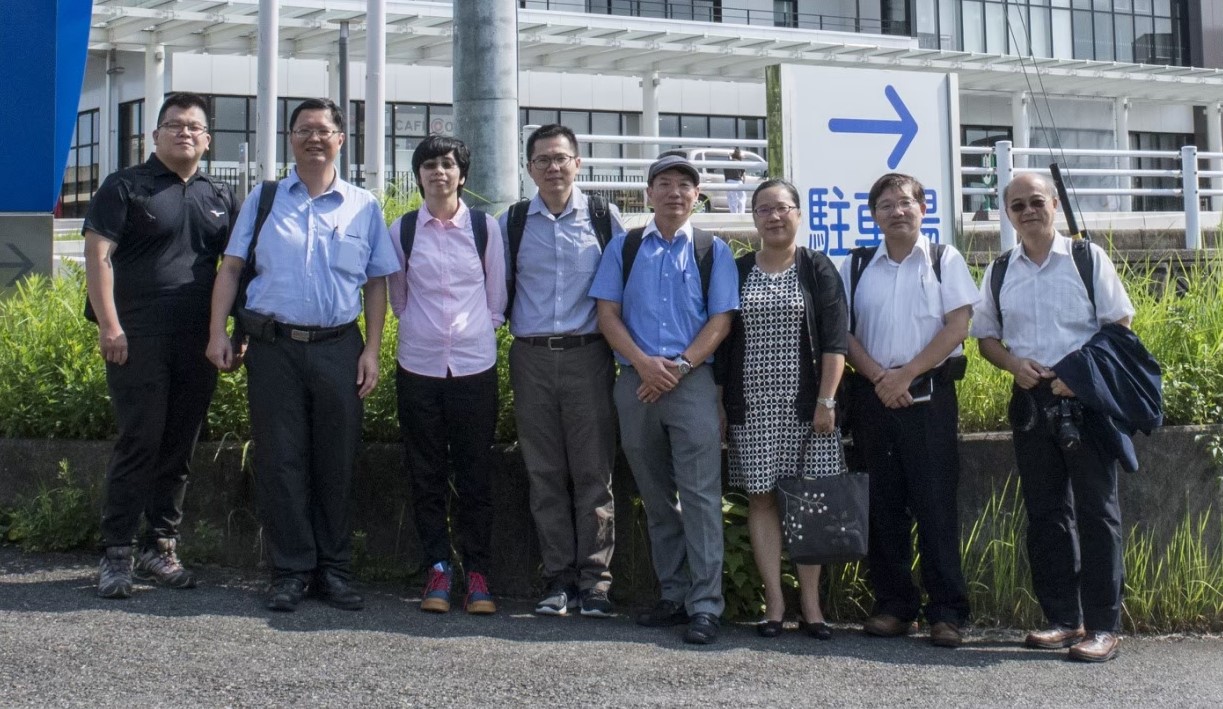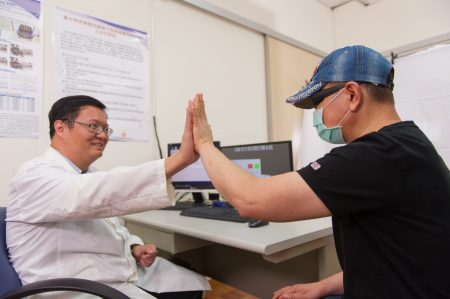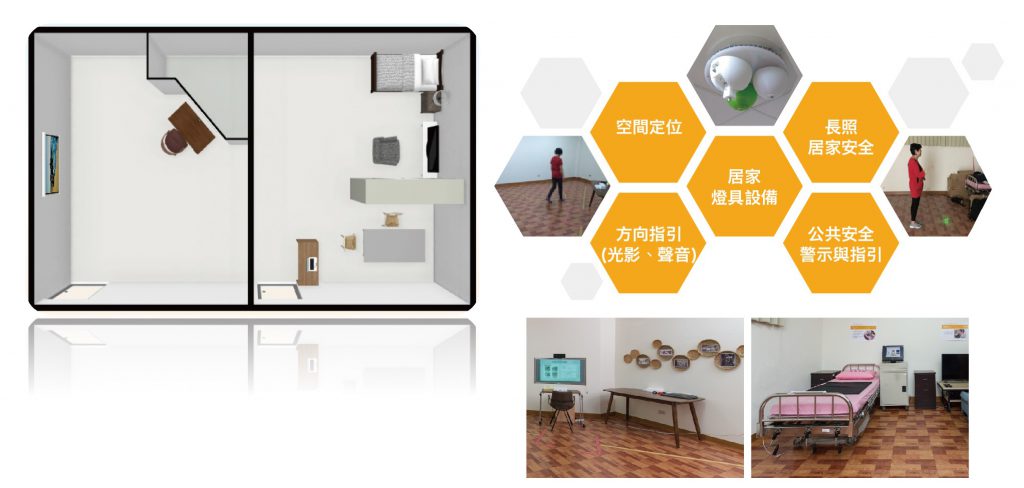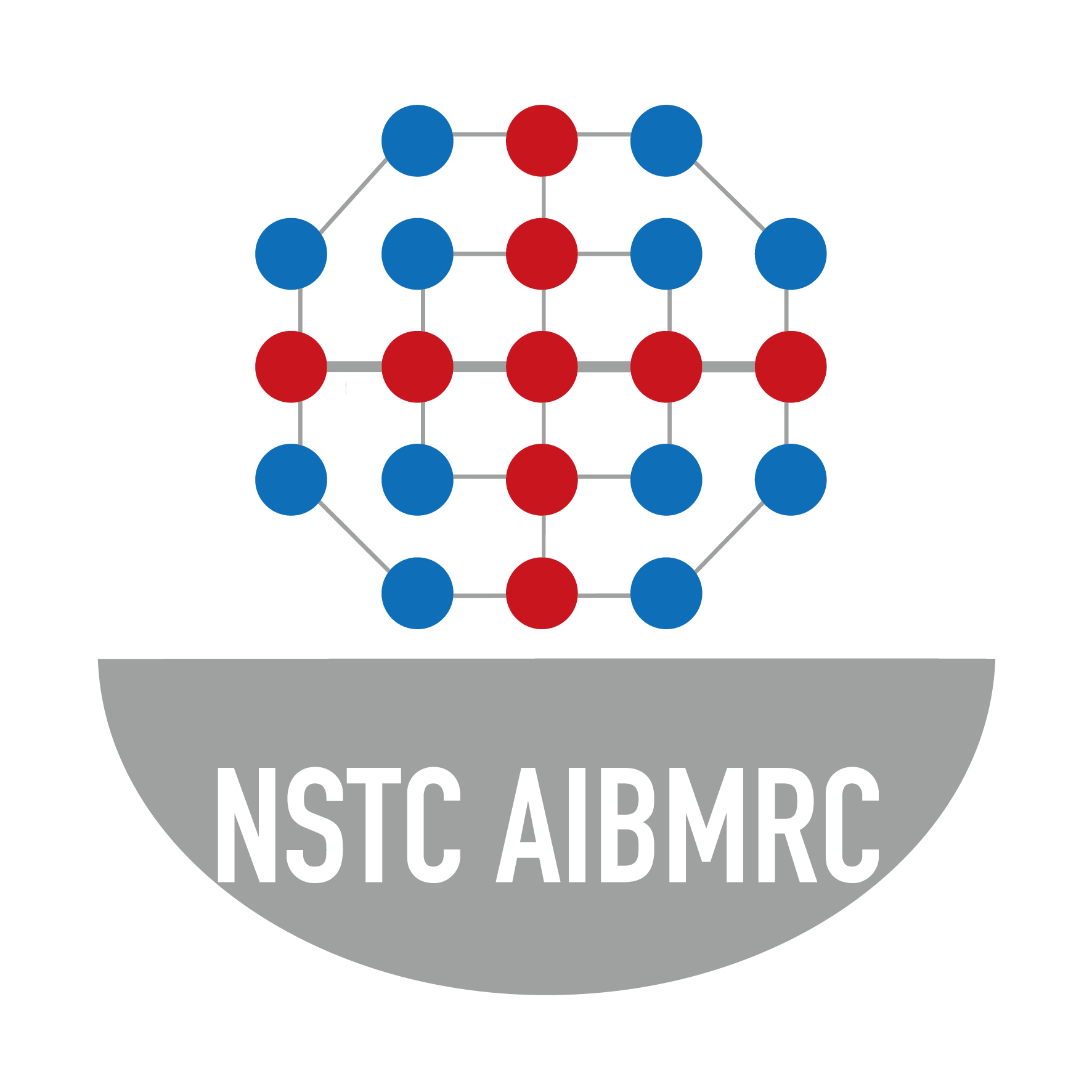
Development of AI assisted assessment and intervention system based on the culture contextualization for care of people with neurocognitive disorder
Principal Investigator |
Min-Wei Huang Doctor
Psychiatry, Chiayi Branch, Taichung Veterans General Hospital
Co-Principal Investigator |
Ya-Han Hu, Professor Management Information System Dept, CCU
Hsien-Chang Wang, Assistant Professor Digital Contents Design Dept, CJCU
Ji-Jer Huang, Associate Professor Electrical Engineering Dept, STUST
Chun-Ju Hou, Assistant Professor Electrical Engineering Dept, STUST
Yen-Ting Chen, Associate Professor Electrical Engineering Dept, STUST
Co-Principal Investigator |
Ya-Han Hu, Professor Management Information System Dept, CCU
Hsien-Chang Wang, Assistant Professor Digital Contents Design Dept, CJCU
Ji-Jer Huang, Associate Professor Electrical Engineering Dept, STUST
Chun-Ju Hou, Assistant Professor Electrical Engineering Dept, STUST
Yen-Ting Chen, Associate Professor Electrical Engineering Dept, STUST
Project Intro
The project integrates all units including clinical physical and mental health practice, medical engineering, information engineering and social welfare. An innovative artificial intelligence-assisted assessment and treatment system of dementia care based on cultural context will be set up by the cross-disciplinary teams with AI technology. The system establishes early intervention mechanisms for early detection of dementia and build up measurements to improve personal cognitive function, emotional state, social and daily behavioral functions. The project is expected to establish a set of medical detection records and evaluation system with subjective clinical questionnaires and objective measurement techniques, including functional magnetic resonance imaging with clinical questionnaires to realize the association of individualized impairment in patients with dementia (sub-project 1), and to build physical fitness with behavioral analysis and interactive response measurement through the concept of ecosystem (sub-project 2), and to collect neurophysiological responses to emotional regulation of dementia populations in combination with emotioninduced experiments consistent with local ageing groups (Sub-project 3). Finally, to construct an environmental interactive board game system based on technology aids, providing an supportive tool that can be used to detect theinterpersonal social skills of the dementia (Sub-project 4). This integrated program seeks to integrate the best gold-level assessment indicators for the detection and assessment of dementia populations from a multi-faceted concept, as well as a personalized and personalized clinical prescription and training program for the demented elders (Master plan and various sub-projects). The field will be built according to each level of care center and the location will be expanded. The plan includes the Yunlin Chiayi area and foreign areas, and the use of big data in series to establish the use of AI technology in clinical prescriptions (Sub-project 5). This will enable us to cultivate AI-capable medical engineering and information professionals, as well as caregivers who can use technology care, in order to provide and develop a diverse, integrated, evidence based and scalable evaluation service or evaluation model.
The project integrates all units including clinical physical and mental health practice, medical engineering, information engineering and social welfare. An innovative artificial intelligence-assisted assessment and treatment system of dementia care based on cultural context will be set up by the cross-disciplinary teams with AI technology. The system establishes early intervention mechanisms for early detection of dementia and build up measurements to improve personal cognitive function, emotional state, social and daily behavioral functions. The project is expected to establish a set of medical detection records and evaluation system with subjective clinical questionnaires and objective measurement techniques, including functional magnetic resonance imaging with clinical questionnaires to realize the association of individualized impairment in patients with dementia (sub-project 1), and to build physical fitness with behavioral analysis and interactive response measurement through the concept of ecosystem (sub-project 2), and to collect neurophysiological responses to emotional regulation of dementia populations in combination with emotioninduced experiments consistent with local ageing groups (Sub-project 3). Finally, to construct an environmental interactive board game system based on technology aids, providing an supportive tool that can be used to detect theinterpersonal social skills of the dementia (Sub-project 4). This integrated program seeks to integrate the best gold-level assessment indicators for the detection and assessment of dementia populations from a multi-faceted concept, as well as a personalized and personalized clinical prescription and training program for the demented elders (Master plan and various sub-projects). The field will be built according to each level of care center and the location will be expanded. The plan includes the Yunlin Chiayi area and foreign areas, and the use of big data in series to establish the use of AI technology in clinical prescriptions (Sub-project 5). This will enable us to cultivate AI-capable medical engineering and information professionals, as well as caregivers who can use technology care, in order to provide and develop a diverse, integrated, evidence based and scalable evaluation service or evaluation model.


System Capabilities
The system consists of three sets of modules, namely the spatial positioning module, the loudspeaker module and the directional guidance module.
The system consists of three sets of modules, namely the spatial positioning module, the loudspeaker module and the directional guidance module.
- Spatial Positioning-
The device contains an infrared camera, with several infrared light sources arranged around the camera, and a general or fisheye lens will be placed in front of the camera to increase its viewing angle to capture image signals from the space below. - Loudspeaker-
the hardware is an amplifier, which is used to receive control signals to interact with the subject. - Directional Guidance-
a low-energy laser is the main light source, with a guidance grating on the front end to produce the desired pattern onto the ground.
Cooperating Partners
- Carepro Tainan
- Beunen Foundation
Contact info
Tel:05-2359630 #1015
Mail:hminwei@gmail.com
Tel:05-2359630 #1015
Mail:hminwei@gmail.com
